New Lit on the Block :: The Wild Ones
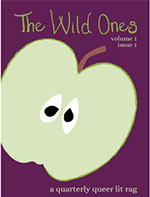 Morgan Laidlaw and Zan Giese are the editorial force behind the newly launched biannual PDF The Wild Ones: A Queer Literary Magazine. Publishing stories, essays, and poetry written by LGBTQ+ writers, for LGBTQ+ writers, that “depict life and the world as we see and experience it,” The Wild Ones means to create a space for queer authors.
Morgan Laidlaw and Zan Giese are the editorial force behind the newly launched biannual PDF The Wild Ones: A Queer Literary Magazine. Publishing stories, essays, and poetry written by LGBTQ+ writers, for LGBTQ+ writers, that “depict life and the world as we see and experience it,” The Wild Ones means to create a space for queer authors.
“There are so many outlets that reinforce hetero-normative culture,” Morgan tells NewPages, “and we need more works and publications that cater to us as queers. Most people can name at least one gay magazine or one queer author who has been published in a major magazine. But magazines like ours? Where they are just queer magazines? Space is what we are all looking for. Space to fit in. Space to exist and space to create. There are gaps where queer people don’t quite fit into mainstream expectations and some queers who still don’t fit at all. It’s not that what’s already out there isn’t good enough, it’s that there isn’t enough. Period.”
Morgan and Zan combined this motivation with inspiration to create the magazine’s title. “The name is a hat-tip to Oscar Wilde,” Morgan explains, “but also to Where the Wild Things Are and Maurice Sendak and Thorton Wilder. It’s also a reference to the kinds of stories we’re looking for: wild stories that don’t conform to stereotype or convention.”
Their first issue is a reflection of this mission, featuring an amazing science fiction short story from B.R. Sanders and hard-hitting poetry from contributors like Mark Ward, Sea Sharp, and Alaina Symanovich. “Right now,” Morgan says, “we’re trying to establish ourselves as a source for high-quality literary work through our journal and cultural criticism through our website. In the future, we’d love to publish quarterly, and move into other publishing venues as well.”
The Wild Ones accepts submissions via their online form and welcomes pitches sent e-mail. The editors are also looking to grow their writing staff. If anyone is interested in writing for The Wild Ones website, send an email with a writing sample.

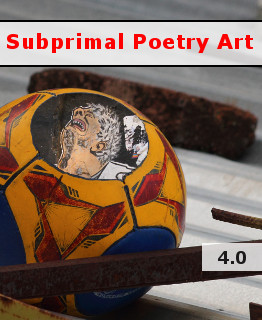
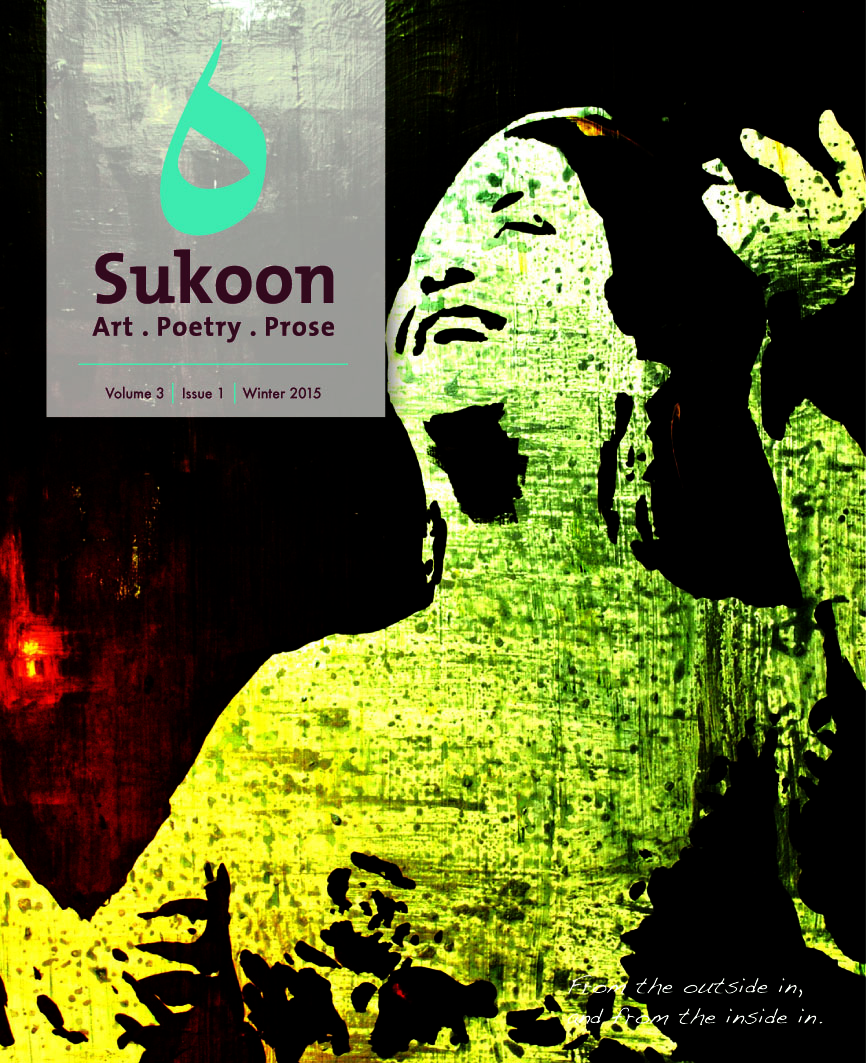
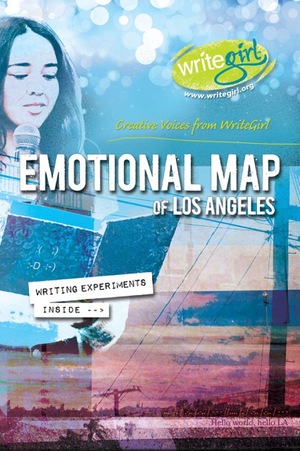 Located in Los Angeles,
Located in Los Angeles,  The newest issue of
The newest issue of 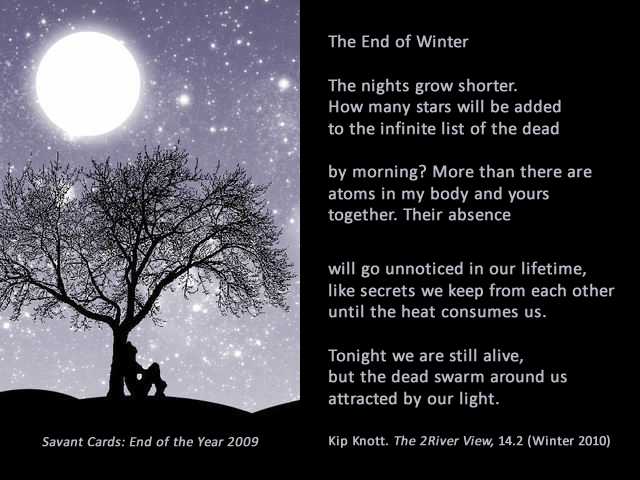 Like most Englishy folk, I love to read in print. But I also love the ease and accessibility of reading online lit mags. The
Like most Englishy folk, I love to read in print. But I also love the ease and accessibility of reading online lit mags. The 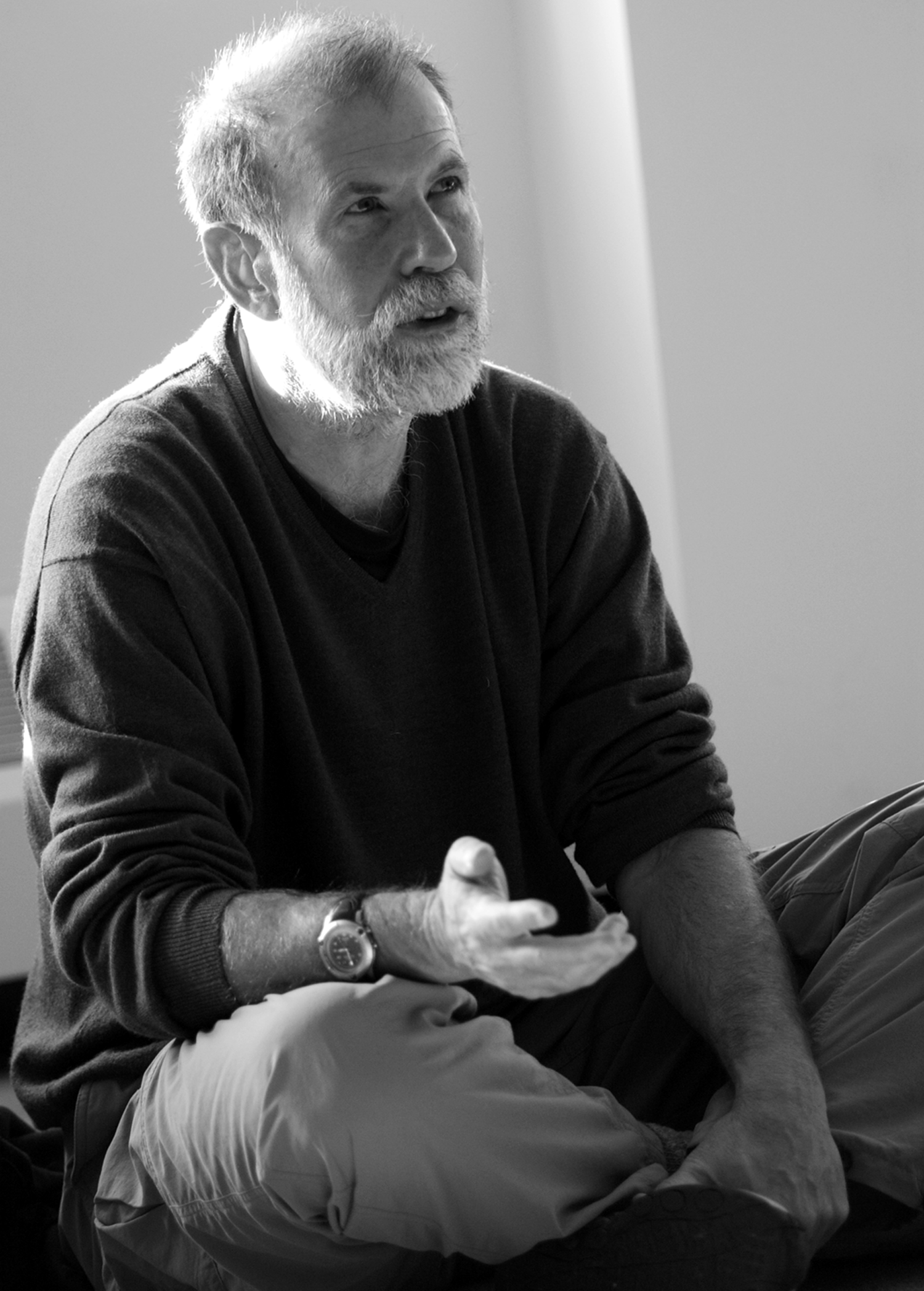 From
From  Tuesday, October 20, 2015 is the seventh annual
Tuesday, October 20, 2015 is the seventh annual 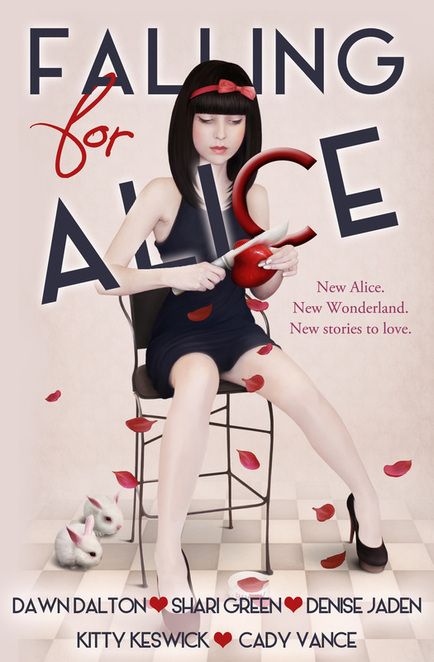 I just coulnd’t pass this one up! “From the modern Alice dumped in the Aquarian Age of the late sixties, to the present day Alice, tormented by body image and emotional issues, to the Alice of the future, launched forward through time and space,
I just coulnd’t pass this one up! “From the modern Alice dumped in the Aquarian Age of the late sixties, to the present day Alice, tormented by body image and emotional issues, to the Alice of the future, launched forward through time and space, 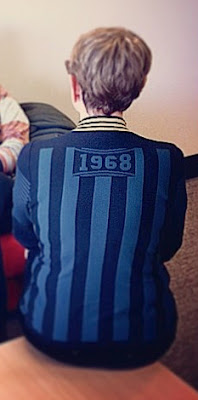 Pam Brown: “I find in writing a poem that it’s ‘difficult’ to get it right – to have it look, sound & read as I intend. I can spend ages adjusting punctuation & spacing & lineation. Also on keeping things clear. Sometimes having my fragments connect to my meanings is really a challenge. I live in my own private metonymy. I guess, with indirectness, which is how some of my poetry can operate, that good old representation is a kind of solution. I’m not a formalist. I don’t work within particular poetic forms. I’ve tried various forms and they usually fail to conform. I do think that it’s difficult to have formal poems retain a procedure & avoid seeming contrived & tight. I like content to work easily without being obstructed by the form. I don’t want that kind of structural difficulty.” Read the rest:
Pam Brown: “I find in writing a poem that it’s ‘difficult’ to get it right – to have it look, sound & read as I intend. I can spend ages adjusting punctuation & spacing & lineation. Also on keeping things clear. Sometimes having my fragments connect to my meanings is really a challenge. I live in my own private metonymy. I guess, with indirectness, which is how some of my poetry can operate, that good old representation is a kind of solution. I’m not a formalist. I don’t work within particular poetic forms. I’ve tried various forms and they usually fail to conform. I do think that it’s difficult to have formal poems retain a procedure & avoid seeming contrived & tight. I like content to work easily without being obstructed by the form. I don’t want that kind of structural difficulty.” Read the rest: 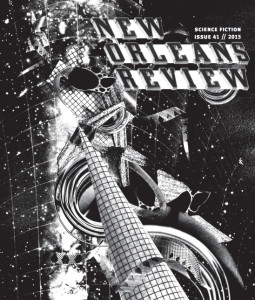 Science Fiction is the theme of the newest issue of
Science Fiction is the theme of the newest issue of  In 2016, BOA Editions, Ltd. will celebrate their 40th anniversary. Founded in 1976 by A. Poulin, Jr., BOA has published more than 300 titles, releasing 10-12 new works each year. To celebrate their anniversary, the press will be introducing a newly designed website with a fully-integrated online bookstore and interactive author events page. The enhanced website will also include a year-long social media campaign using the hashtag #BOATurns40 for readers and writers to share their “ideal reading and/or writing experience,” with video content of BOA authors giving their answers. BOA has lots in store for AWP 2016 as well, from giveaways to an onsite reading.
In 2016, BOA Editions, Ltd. will celebrate their 40th anniversary. Founded in 1976 by A. Poulin, Jr., BOA has published more than 300 titles, releasing 10-12 new works each year. To celebrate their anniversary, the press will be introducing a newly designed website with a fully-integrated online bookstore and interactive author events page. The enhanced website will also include a year-long social media campaign using the hashtag #BOATurns40 for readers and writers to share their “ideal reading and/or writing experience,” with video content of BOA authors giving their answers. BOA has lots in store for AWP 2016 as well, from giveaways to an onsite reading.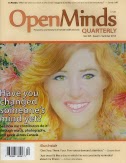 I love
I love 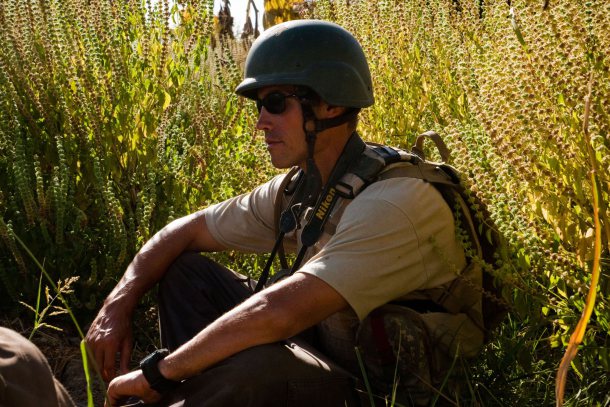 American journalist and poet James Foley disappeared in November 2012 in Syria. He was beheaded in 2014, an act captured on a video released by the Islamic State of Iraq and Syria (ISIS), also known as the Islamic State of Iraq and the Levant (ISIL). He was the first American citizen known to be killed by ISIL.
American journalist and poet James Foley disappeared in November 2012 in Syria. He was beheaded in 2014, an act captured on a video released by the Islamic State of Iraq and Syria (ISIS), also known as the Islamic State of Iraq and the Levant (ISIL). He was the first American citizen known to be killed by ISIL. Adding to their print publication of outstanding writing,
Adding to their print publication of outstanding writing, 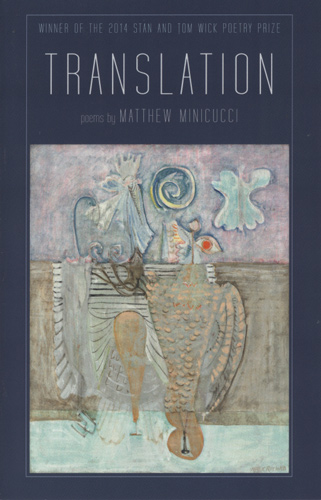 Matthew Minicucci’s Translation was published in August 2015, winner of the 2014
Matthew Minicucci’s Translation was published in August 2015, winner of the 2014 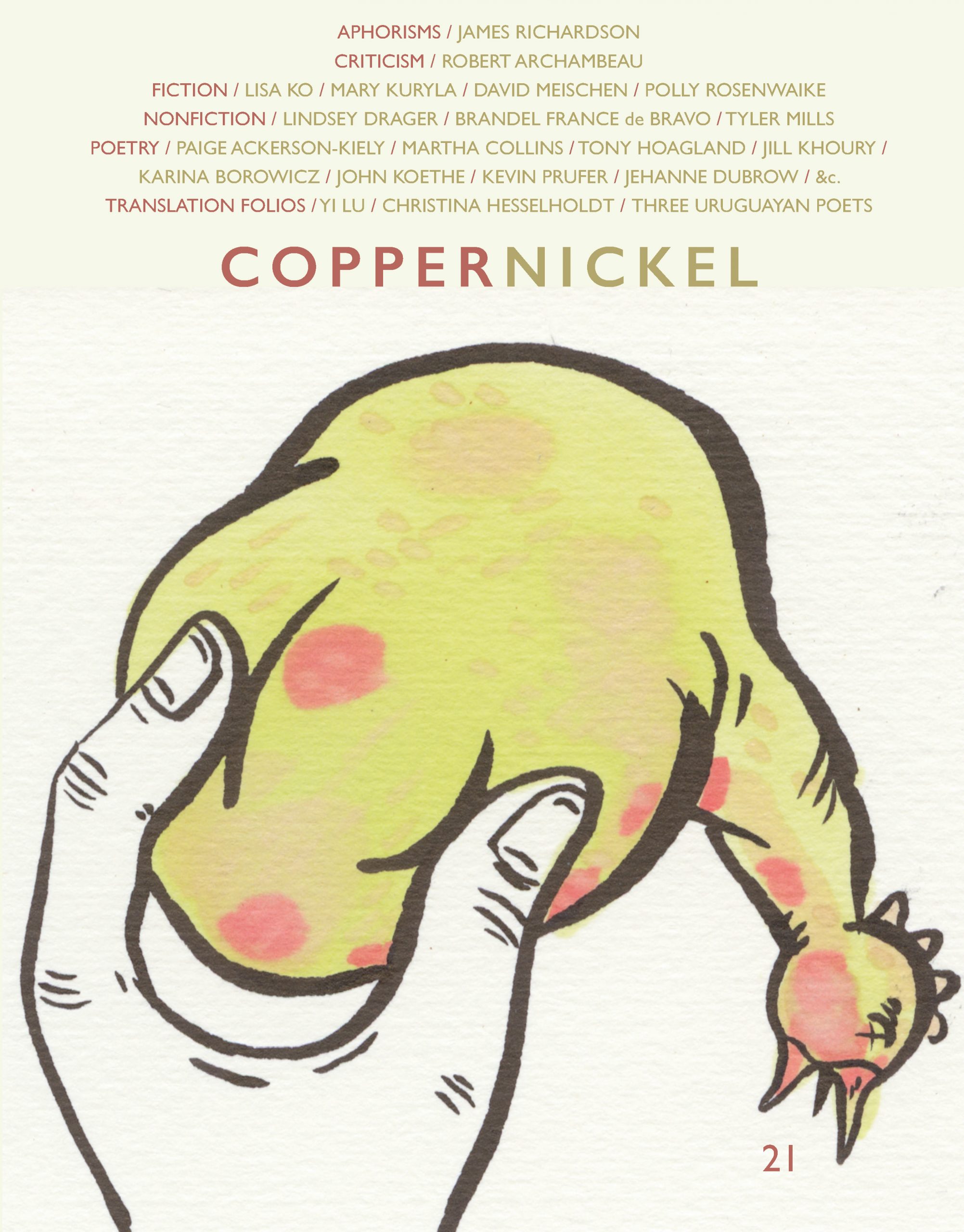 Beginning with issue 20, Copper Nickel is now offering two $500 Editors’ Prizes – one in poetry, one in prose – for the “most exciting work in each issue, as determined by a vote of [their] editorial staff.” You have to love the guidelines, which I find refreshing in this day and age of data, rubrics, and assessment. It’s nice to know that the abstract, subjective, and aesthetic have not been completely snuffed out when it comes to artistic appreciation of intelligent literary craft. Issue 21 announces the first winners (from #20) were Michelle Okaes for her poems “Bionics” and “How to Live” and Donovan Ortega for his essay “In a Large Coastal City.” Speaking of aesthetic appreciation, can we talk about that cover? (By
Beginning with issue 20, Copper Nickel is now offering two $500 Editors’ Prizes – one in poetry, one in prose – for the “most exciting work in each issue, as determined by a vote of [their] editorial staff.” You have to love the guidelines, which I find refreshing in this day and age of data, rubrics, and assessment. It’s nice to know that the abstract, subjective, and aesthetic have not been completely snuffed out when it comes to artistic appreciation of intelligent literary craft. Issue 21 announces the first winners (from #20) were Michelle Okaes for her poems “Bionics” and “How to Live” and Donovan Ortega for his essay “In a Large Coastal City.” Speaking of aesthetic appreciation, can we talk about that cover? (By  A great connection with STEM, the Fall 2015 issue of
A great connection with STEM, the Fall 2015 issue of 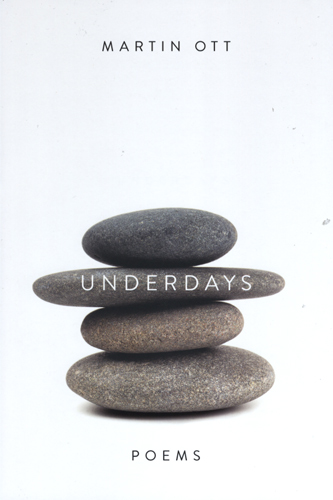 The
The 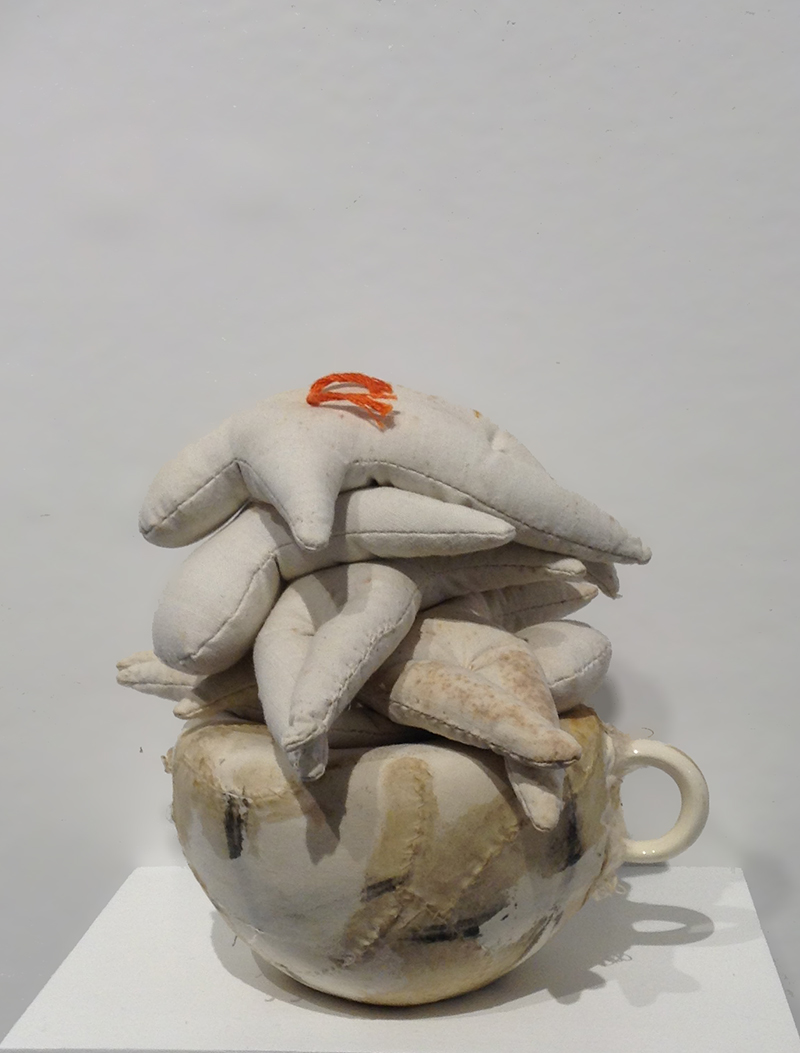 The editors at
The editors at 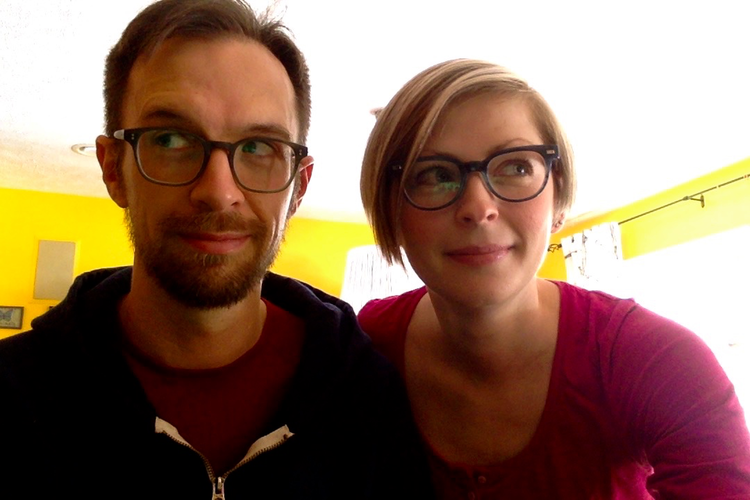 It was only a matter of time before the Little Library idea got hijacked and starting showing up as other cool community Little House outreach. Three Pittsburgh poets, Sarah B. and Jeffrey Boyle [pictured] of
It was only a matter of time before the Little Library idea got hijacked and starting showing up as other cool community Little House outreach. Three Pittsburgh poets, Sarah B. and Jeffrey Boyle [pictured] of 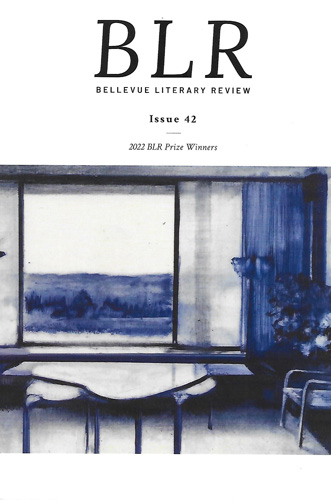 Bellevue Literary Review
Bellevue Literary Review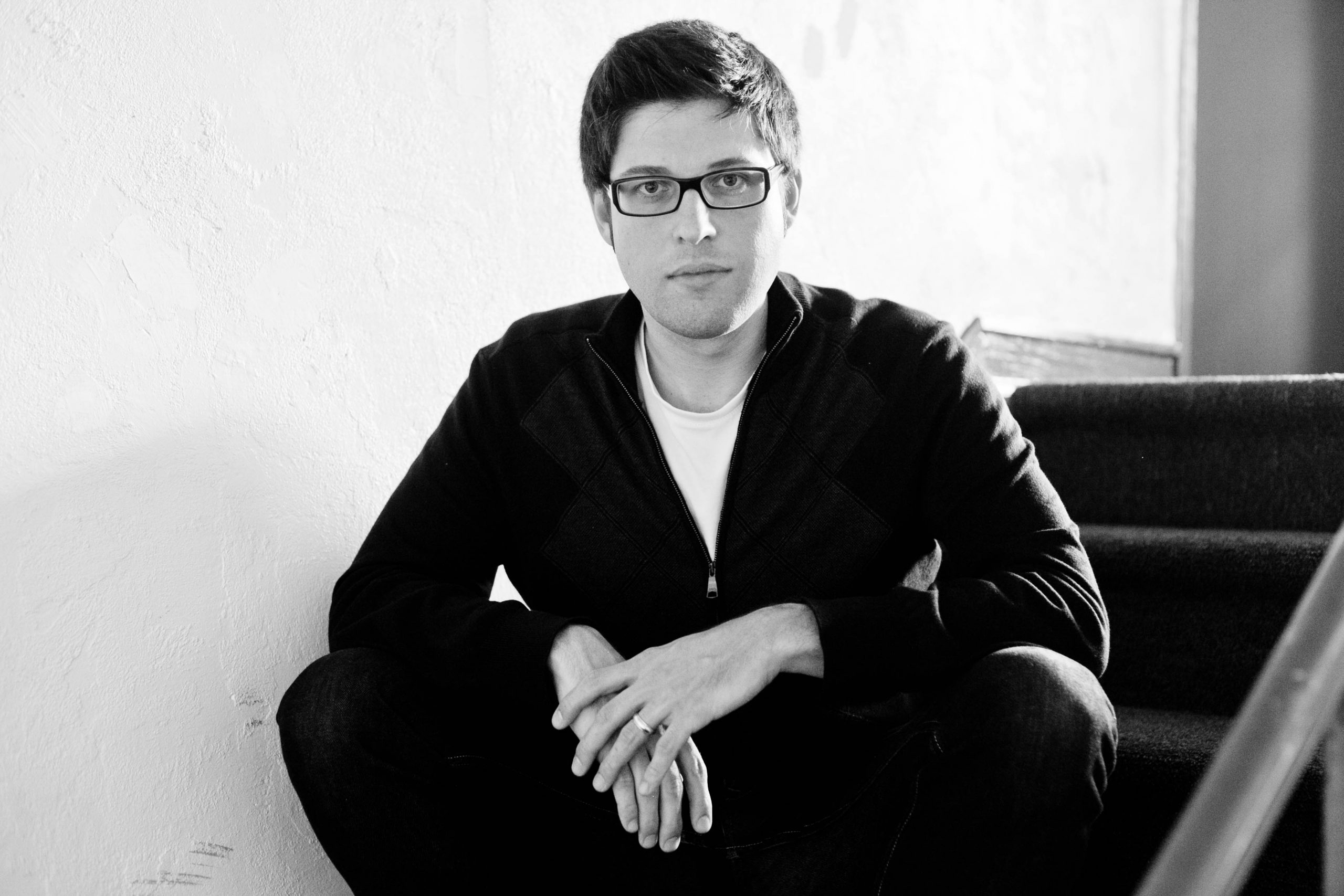 Glimmer Train
Glimmer Train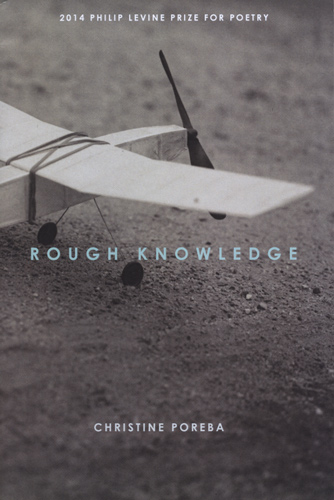 Look forward to Christine Poreba’s Rough Knowledge, winner of the 2014 Philip Levine Prize in Poetry, currently scheduled to be published by Anhinga Press at the beginning of 2016. Rough Knowledge is Poreba’s first book and was chosen from nearly 700 manuscripts by Peter Everwine.
Look forward to Christine Poreba’s Rough Knowledge, winner of the 2014 Philip Levine Prize in Poetry, currently scheduled to be published by Anhinga Press at the beginning of 2016. Rough Knowledge is Poreba’s first book and was chosen from nearly 700 manuscripts by Peter Everwine.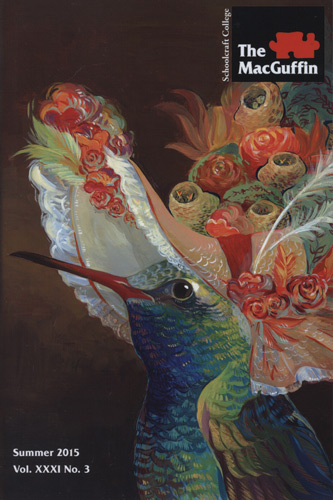 The MacGuffin has announced the winners of their Poetry Prize, which was sponsored at the Detroit Working Writer’s Conference this spring.
The MacGuffin has announced the winners of their Poetry Prize, which was sponsored at the Detroit Working Writer’s Conference this spring.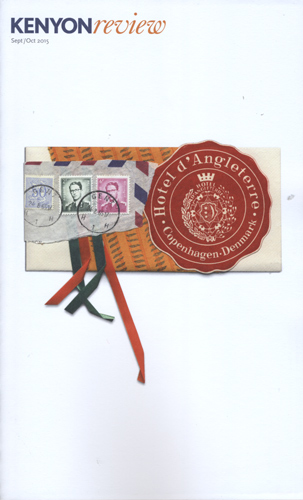 In the September/October issue of The Kenyon Review, find the winners of the 2015 Patricia Grodd Poetry Prize for Young Writers.
In the September/October issue of The Kenyon Review, find the winners of the 2015 Patricia Grodd Poetry Prize for Young Writers.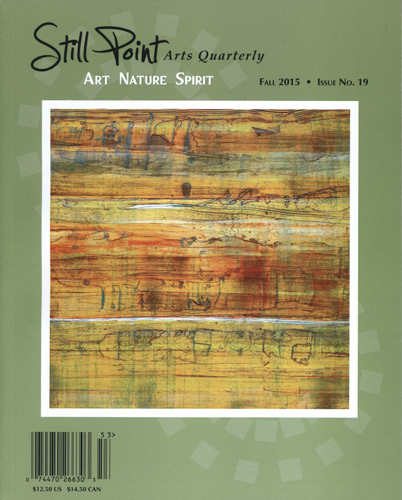 Still Point Arts Quarterly has released its first issue since it absorbed Stone Voices. With the new publication comes a new look (a brighter, more eye-catching cover), and plans to focus on “art, nature, and spirit” while connecting these themes to make a cohesive, enjoyable read. Regular readers will be comforted to know that columnists Peter Azrak, Vincent Louis Carrella, and Leslie Ihde, will continue to write for this version of the Quarterly.
Still Point Arts Quarterly has released its first issue since it absorbed Stone Voices. With the new publication comes a new look (a brighter, more eye-catching cover), and plans to focus on “art, nature, and spirit” while connecting these themes to make a cohesive, enjoyable read. Regular readers will be comforted to know that columnists Peter Azrak, Vincent Louis Carrella, and Leslie Ihde, will continue to write for this version of the Quarterly. Last month, Francesco Levato, a new media artist, poet, and director of The Chicago School of Poetics, started
Last month, Francesco Levato, a new media artist, poet, and director of The Chicago School of Poetics, started